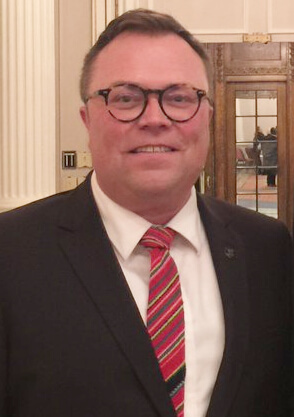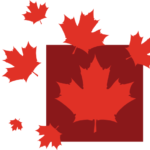
Marcus Kolga joins NCM for a Q&A session. Kolga is an international award-winning documentary filmmaker, journalist, human-rights activist, and an expert on Russian disinformation and sanctions. He is a Senior Fellow at the Macdonald-Laurier Institute’s Centre for Advancing Canada’s Interests Abroad.
Q. There has been recent commentary suggesting that Canada is headed in the same direction as America: news that is torqued to suit a specific agenda and a hyper-polarized political landscape. What do you think?

A. I don’t yet see the same sort of politicization of news happening in Canada, as it has in the US over the past decade. Canada’s main broadcast news channels and newspapers, generally, present news objectively with balanced analysis and commentary, in contrast to US outlets such as CNN and FOX, which could no longer really be defined as “news” channels. In fact, I think that Canada’s mainstream media fairly accurately reflects the views of the vast majority of mainstream Canadians.
We can’t reasonably expect journalists to be 100% politically agnostic all of the time, but I think that our press corps is very professional, and that our mainstream media platforms do their best to ensure a plurality of perspective to reflect the political diversity of our nation.
We certainly have online platforms in Canada that are used to distribute and amplify fringe political views, such as Rebel Media, which seems to be aligned with Maxime Bernier’s far-right populist People’s Party of Canada. On the left, Global Research, a Montreal based media platform, amplifies fringe-left narratives, most of which are aligned with Kremlin, Chinese, Iranian, North Korean and Syrian regime positions and often amplifies state propaganda. Unfortunately, these platforms have the effect of dividing Canadians along ideological lines, and in some cases, perhaps intentionally.
Q. Based on your extensive research on the topic of disinformation, who are the domestic and foreign actors most likely to manipulate our upcoming federal election?

A. Foreign disinformation attacks will come, primarily, from Russia, Iran, China and perhaps Venezuela. Tweets recently released from foreign accounts deleted by Twitter, demonstrate that Iran and Russia created and amplified messaging that attempted to discredit and attack Canadian policy and interests. Some of the issues they targeted were pipelines, immigration, the Syrian refugee crisis in 2015, and in the Russian case, Ukraine, sanctions and history. I expect these regimes to attempt interference in the October election. Malign pro-Kremlin actors will seek to exploit sensitive political issues in efforts to further intensify existing political divisions – this will include narratives about immigration, pipelines, NATO and Canada’s support for Ukraine. Furthermore, these regimes will likely target specific ridings/electoral districts where candidates who are sympathetic towards these regimes are nominated to run.
Q. What is the state of news literacy in Canada? Are there particular demographic groups that you are particularly concerned about?
![]()
A. In a recent IPSOS poll, 42% of Canadian respondents said that they get their news from social media platforms. But only 34% of respondents said they trust online sources. In another Global News poll from February, 71% of Canadians said that they are concerned about fake news. That’s a good sign, however, we don’t know how or if these Canadians are able to detect false news in their feeds. I think that most Canadians have seen friends or connections on social media share news that was questionable.
What makes this difficult for all of us, is that social media algorithms prey on our predisposition to be attracted by headlines that reinforce our existing biases. So someone who is concerned with climate change, and reads articles related to climate change, will be fed those articles in their social media streams, regardless of the source. That could expose them to false narratives and potential propaganda. Media companies will produce and share dramatic headlines that reinforce that person’s bias, making that person more likely to click on that headline.
This is commonly referred to as “click-bait”. The more clicks (or viewers) a media platform gets, the more revenue it generates from ad servers like Google. Canadians should be more aware of this cycle, and question the headlines that get fed to them via social media.
Q. Are diaspora/immigrant communities in Canada particularly vulnerable to fake news? If so, how come?

A. Some are vulnerable to fake news. Most vulnerable are those communities that rely on third language state sponsored news or programming. There are a number of authoritarian and totalitarian states whose television news is broadcast on Canadian cable and satellite, and for which there are many thousands of subscribers. That means that thousands of Canadians are being exposed to raw state propaganda on issues that could be critically important for Canada and our interests. Banning such channels isn’t the answer, as it would conflict with our own values, especially freedom of speech. However, we can help fund alternative news that is high quality in third languages, such as the news that OMNI TV provides.
We can also make sure that the cost for broadcasting propaganda in Canada is high, and introduce consequences, such as fines, for the broadcasting of false news by foreign broadcasters, as the UK does with their broadcast regulator, OFCOM.
Q. Finally, in your view, how likely is it that fake news will play a critical role in determining the outcome of the Oct. 21 election?

A. I’m not sure that fake news will determine the outcome of the overall election, but it could create problems and amplify existing divisions on sensitive issues, such as the environment and immigration. We will likely see attempts to exploit our problems with Huawei and China too. Putin would also like to see Canada reduce its support for Ukraine and the NATO mission in Latvia and the Baltics, so we shouldn’t be surprised to see headlines that are negative regarding those regions.
NewCanadianMedia.ca is Canada’s premier web site dedicated to news and views about the one-fifth of Canadians who are immigrants. You’ll find original journalism from an immigrant perspective along with content produced by our partners in Canada’s ethnic media. Our content provides fresh insights into developments in politics and society, enhancing your understanding of our diverse world.





